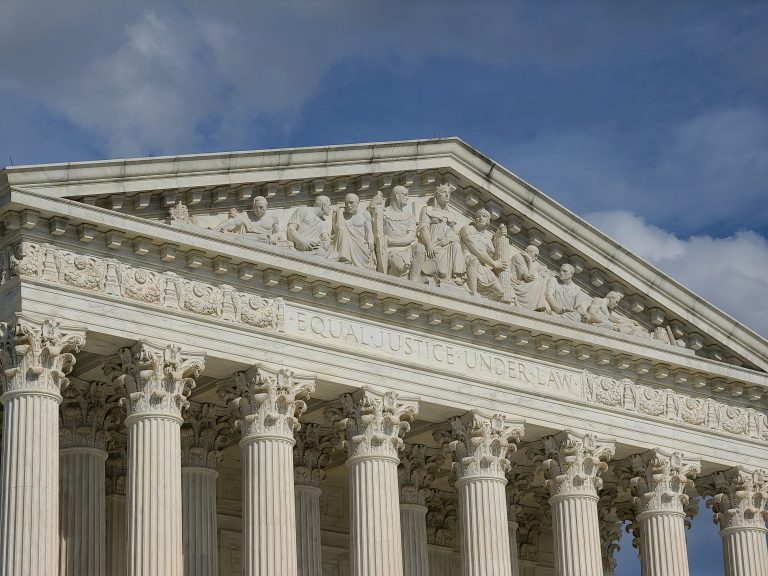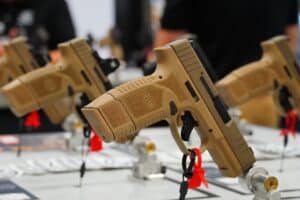The Supreme Court’s 2008 District of Columbia v. Heller decision has led to a wave of laws being tossed as incompatible with the Second Amendment but, perhaps, not the ones people expect.
While Heller was specifically about whether or not Washington, D.C., could completely ban the ownership of handguns, it was also the first time the Supreme Court said the Second Amendment secured an individual right. Many people on both sides of the gun debate believed it would lead to a slew of gun-control laws being tossed. When the Court incorporated the Second Amendment to the states two years later by striking down Chicago’s handgun ban in McDonald v. City of Chicago, the excitement among gun-rights advocates built.
But there were few outright bans on handguns left to go once Chicago’s was gone.
And the Court has remained almost entirely silent on restrictions beyond handgun bans since that time. It has not decided any significant Second Amendment case on the merits since Heller. The reckoning for gun-control laws has been delayed on almost every front. Except one: stun guns.
While it didn’t rule on the merits of the Massachusetts stun-gun ban in 2016’s Caetano v. Massachusetts, the Court did unanimously find a lower-court ruling upholding the ban was wrong. It said neither the fact that stun guns are new technology nor the fact that they aren’t useful in military service places them outside the Second Amendment. And that small bit of insight from a five-paragraph opinion fueled the extremely successful effort to invalidate stun-gun bans nationwide.
This month, Hawaii repealed its ban on stun guns. That didn’t happen because legislators had a change of heart. Instead, they were forced to by a court case relying on the Heller precedent.
“There was a case on the continent putting serious doubt [on] whether we could continue to have our ban on private ownership of so-called electric guns,” state senator Karl Rhoads (D.) told Hawaii News Now. “The courts have certain powers and in their wisdom have determined that electric guns fall under the Second Amendment.”
It’s a script that’s played out more than a dozen times now. Activists find a stun-gun ban, they sue, then the locality either repeals its law or loses in court. And it’s all a direct result of the throughline from Heller to McDonald to Caetano.
Stun-gun bans have either been repealed or invalidated in Illinois, Massachusetts, Michigan, New Jersey, Wisconsin, the Virgin Islands, New Orleans, Philadelphia; Washington, D.C.; Overland Park, Kansas; Tacoma, Washington; as well as in Maryland’s Annapolis, Baltimore, Anne Arundel County, Baltimore County, Harford County, and Howard County.
Alan Beck, the lawyer who filed the Hawaii case and many others like it, told The Reload the arguments he’s used against the bans are simple.
“It is irrational for the government to ban an arm that is less lethal than handguns,” he said. “And I think that is something the courts have acknowledged. If the government does not have enough of an interest to ban handguns, then it clearly cannot have an interest in banning an arm that is less lethal than handguns. I think that simple idea is the primary reason that the courts have been willing to rule in our favor on this session.”
He said the Court singling out a stun-gun ban to reiterate its point about modern arms being protected under the Second Amendment helped make the task of fighting them in court easier. Only a few bans remain in effect anywhere in the country, according to Beck. He is still working his way through the last examples left standing.
“I have one more case pending in Rhode Island,” Beck said. “Wilmington (Delaware) and the county in which it is located (New Castle County) have bans on all electric arms. NYC has a ban on stun guns but not tasers. Michigan has a ban on stun guns, but tasers and all taser-style weapons are legal.”
The Supreme Court is also beginning to become more active on Second Amendment cases. It took a gun-transportation case last term and a gun-carry case this term. It’s entirely possible the Court could punt on its new gun-carry case as it did with the gun-transportation case.
But the wave of successful litigation that’s led to the wholesale elimination of stun-gun bans foreshadows the potential impact of a new ruling recognizing expanded Second Amendment protections.






